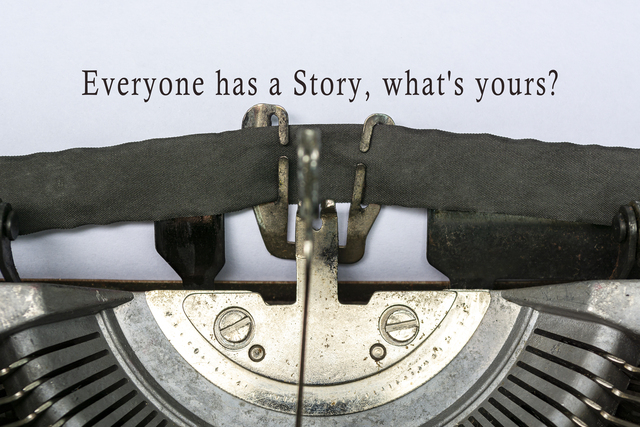Why Love Anything at All?
Allowing God's Love to Teach Us How to Love
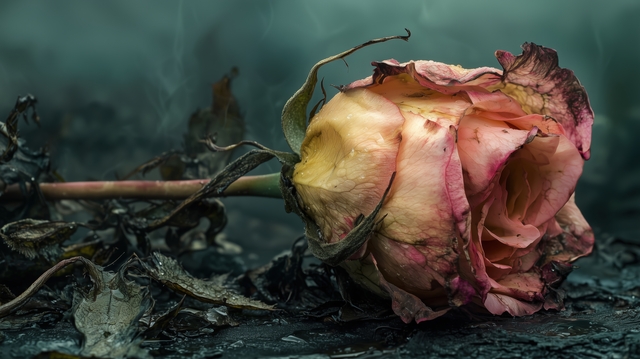
Life is a beautiful, heartbreaking mess, isn’t it? It’s a canvas of beauty and pain, especially when it comes to people.
Loved ones leave us — sometimes by death, sometimes by choice. Friends turn their backs, and whispers of betrayal or misunderstanding can tarnish our reputations before we even get a chance to respond. Relationships, at their core, are challenging because people are complex, unpredictable, and flawed. If you’ve been hurt, you might know this all too well. Maybe it’s why you keep your guard up, why trust feels like a gamble, or why solitude sometimes seems safer than connection. The reasons to avoid closeness are countless, often rooted in wounds that linger.
For me, this struggle shaped much of my testimony. Trust didn’t come easily. I’d been hurt enough — betrayed, or at least it felt that way — to convince myself that staying distant was better than risking more pain. “I’m just better on my own,” I’d tell myself, retreating into the safety of isolation. Even when conflicts arose with people I cared about, I’d dodge confrontation. “What’s the point?” I’d mutter, jaded by conversations that either went nowhere or made things worse. Over time, I started to believe that effort was futile.
Then, a few weeks ago, a song stopped me in my tracks. Its opening verse hit like a mirror what I have struggled with throughout my life: “I’m scared to meet you cause then I might know you. And then once I know you, I might fall in love. But once I’m in love, then my heart is wide open for you to walk in, drop a bomb, blow it up.” At first, it felt almost cliché — maybe just a guy with commitment issues or a string of bad relationships. But then I learned the song came from an album about the artist’s journey into fatherhood. Suddenly, the lyrics took on new depth. Was he singing about a partner? His child? Either way, the fear was palpable — love, in all its vulnerability, carries the risk of devastation. The chorus drives it home: “Why love anything at all? If the higher I fly is the further I fall, why love anything at all?”
The song never answers its own question. It repeats it, lets it linger, but leaves it unresolved. I found myself wondering: Does the artist have an answer tucked away? Is he asking because he’s genuinely lost? Or does the question itself hint at something deeper — that maybe we love because it’s woven into our humanity, even if fear tags along? It’s striking how one simple question can unravel so many others. Since the song doesn’t provide closure, I’ll step in and offer my own answer.
My sister once told me something I’ll never forget: “Love is giving someone the ability to hurt you and trusting they won’t.” Those words stung. I didn’t want to give anyone that power. I didn’t want to be hurt — ever. In a way, I’d been asking myself, long before hearing the song, “Why love anything at all?” For years, I had no answer. But by God’s grace, the picture has become clearer.
Let’s start with the most direct answer: We love because God first loved us (1 John 4:19). We serve a God who is love, revealed in the perfect communion of the Trinity. More than that, we serve a God who loves His creation. We’re made in His image — a remarkable truth in itself. But consider this: When Adam and Eve’s sin fractured our relationship with God, what was His first response? Grace. Yes, His holiness demanded their banishment from the garden, but first, He clothed them. That act marked the beginning of His relentless pursuit of redemption, a plan set before the foundation of the world. From the fall, God was on a mission to restore us.
What do you see in the Old Testament? You see a chosen people who repeatedly rebelled and ran from God. Individuals mirrored this pattern. Yet God never stopped pursuing them. His mission, with eternity in view, culminated when Christ declared, “It is finished” on the cross.
Calvary is the greatest demonstration of love in human history. “Greater love has no one than this,” reads John 15:13, “that someone lay down his life for his friends.” If you are in Christ, you are His friend, and He is yours. He laid down His life for you, enduring not just physical agony but the unimaginable weight of God’s wrath, which severed His communion with the Father. He was mocked, beaten, and afflicted, yet nothing compared to the pain of that separation. Still, He chose the cross willingly, accomplishing the ultimate act of love that secured our undeserved salvation.
But do you recall what happened just before this scene in history? Judas, one of the twelve, betrayed Him with a kiss for thirty pieces of silver. Peter denied Him three times. An angry crowd chose to free Barabbas, a criminal, over an innocent Christ. What a terrible, dreadful, and excruciatingly painful last few moments. And Jesus did not ignore the pain but delivered it up to God through prayer in the garden of Gethsemane. “He fell on His face and prayed, saying, ‘My Father, if it be possible, let this cup pass from me; nevertheless, not as I will, but as You will’” (Matthew 26:39).
Despite the agony, betrayal, and mocking, He went to the cross. Yes, in obedience to God. Yes, to fulfill prophecy. And yes, because of love. This love — God’s love — changes everything. It’s the answer to why we love, even when it hurts. It’s the reason we risk vulnerability, despite the fear of falling. Because Christ loved us first, we can love others, trusting that the One who laid down His life for us will sustain us through every wound and every risk.
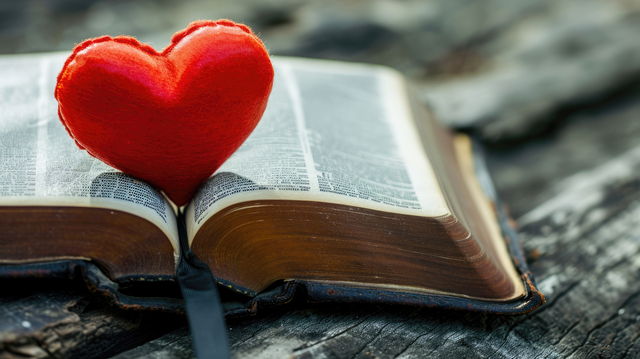
Beyond this, we love because Christ commands it. The two greatest commandments are to love God with all our heart, soul, mind, and strength, and to love our neighbor as ourselves. What is sharing the Gospel if not obedience to God and a love so fierce we long to see others saved? We love because it defines our Savior, and it must define us. Not perfectly — never perfectly in this broken world. But that’s no reason to not love anything at all.
So, here’s the call: Love your friends, even when they wound you. Love your family, even when you’re at odds. Love your coworkers, even if they’re worlds apart from you. Love your kids, even when they’re testing every last nerve. Love your political rivals, even when they champion what’s wrong. Love the rude barista at the coffee shop. Love the homeless person, no matter how they ended up there. Love them because they’re stamped with God’s image, infinitely precious, infinitely valuable.
Love because God created us all to love and be loved. Even when you’re hurt — especially then — love. We’re all broken, falling short of God’s glory (Romans 3:23). We’re all fumbling through this life, blind to the full picture, tempted by sin’s pull. That doesn’t justify hurting others, but it explains why pain happens — and why it’ll happen again. Our pain, as real as it is, is part of this fallen world. Our calling isn’t to drown in it but to lift it to God and respond with His love.
Imagine if Jesus, knowing the betrayal, the whips, the cross, had said, “What’s the point? Why bother? They’re too far gone.” and walked away? We’d be lost — eternally. Dead in our sins and trespasses. But He didn’t do that. He leaned into His heavenly mission, His communion with the Father, and His love for us.
So, why love anything at all? Because God loved us first, and because life is not about getting back at or leaving behind those who hurt us. No, we’re not called to be doormats either. But Christ loved us even when we didn’t love Him. What greater example could we ask for? His love fuels us to love others, to reflect His Good News to a world starving for it. If God didn’t abandon us at our worst, how can we abandon others? Sure, the higher you fly, the further you may fall. But the God of the universe, the One who loved you first, is the One holding you, and He promised to never let go.
*Published by The Family Research Council at frc.org (1-800-225-4008; 801 G Street, NW, Washington, D.C. 20001) Authored by Sarah Holliday on September 8, 2025.

Sarah Holliday
Sarah Holliday serves as a reporter for The Washington Stand. She earned her undergrad from Boise State University in Creative Writing and Narrative Arts, as well as a Certificate in Arts and Theology from Reformation Bible College.








